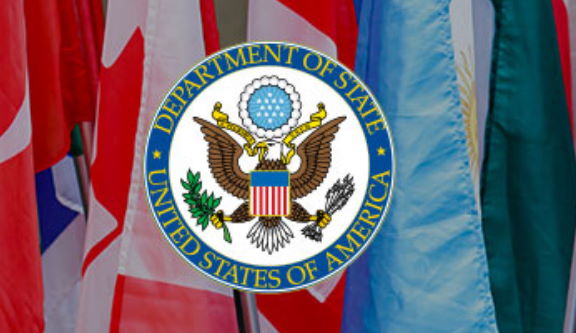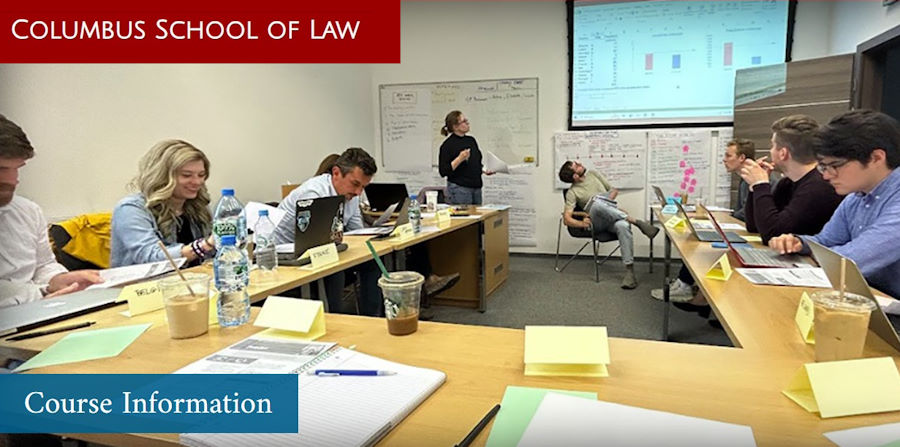The U.S. Embassy is pleased to invite second and third year undergraduate students with civic engagement acumen to apply for the Study of the U.S. Institutes (SUSI) on Media and Journalism as well as Environment Institute for Student Leaders.
The deadline for applications is January 10, 2023. Email complete applications to Taneskab@state.gov.
Study of the U.S. Institutes (SUSIs) for Student Leaders are intensive short-term academic programs whose purpose is to provide groups of undergraduate student leaders with a deeper understanding of the United States while simultaneously enhancing their leadership skills. Each Institute has 20 participants. The Institutes consist of a four-week academic residency with a balanced series of seminar discussions, readings, group presentations, and lectures. Site visits, leadership development, cultural activities, and community service complement the coursework and academic sessions. If conditions allow, the Institutes will include a one-week integrated regional study tour in the United States. Note that if the program must take place virtually, participants will engage in similar activities, but online from their home countries.
Apply by submitting a motivation letter with the attached form, a CV, a reference letter and a copy of passport to Taneskab@state.gov. Your motivation letter of not more than 500 words detailing your community engagement profile, the subjects and year you are currently studying at the university, why you believe you should be considered for this program, and what you will contribute to your community when you returned.
The Study of the U.S. Institute on Environmental Issues will provide participants with an overview of climate change along with its impact on communities in the American west, natural resources, and the local economy. Academic sessions will explore clean energy, sustainable development, the risks of natural disasters, and the intersection of climate justice and community activism. In order to enhance the academic experience, the Institute will focus on specific themes and sub-topics such as strategic communication, social justice, emergency response, water rights, and energy efficiency and sustainability. Academic activities will be supplemented by opportunities to engage with the local community, including a weekend homestay and meeting with local environmental non-profits. The host institution will be identified at the time of participant selection.
The Study of the U.S. Institute on Journalism and Media, hosted by Arizona State University, will provide participants with a deeper understanding of the challenges and opportunities for modern journalism. The Institute will examine freedom of expression in democracy, leveraging multimedia tools, and exploring the role of journalists in promoting media literacy and preventing disinformation. Academic sessions will examine First Amendment rights, fundamentals of multimedia journalism, compelling storytelling, editorial independence, journalistic ethics, legal constraints, civic journalism, media literacy, and digital and social media. The Institute will encourage participants to analyze future trends in media as well as gain practical experience in the tradecraft of journalism, including building trust, interviewing, researching, writing, reporting, and editing. In addition to classroom activities, participants will meet with local news outlets.
ENTRY REQUIREMENTS: Applicants are expected to be highly motivated first through third year undergraduate students from colleges, universities, and other institutions of higher education, who demonstrate leadership through academic work, community involvement, and extracurricular activities. Their fields of study will be varied and may include the sciences, social sciences, humanities, education, business, and other professional fields. Participants from historically underserved and disadvantaged groups, including women, minority communities, and individuals with disabilities, and who have little or no international experience are encouraged to apply.
Applicants of this program must:
- be proficient in English.
- be interested in the topic of civic engagement.
- be between 18 and 25 years of age.
- have at least one semester left of their undergraduate studies and be committed to returning to their home universities following completion of the program.
- demonstrate strong leadership qualities and potential in their university and community activities.
- indicate a serious interest in learning about the United States.
- have a sustained high level of academic achievement, as indicated by grades, awards, and teacher recommendations.
- demonstrate commitment to community and extracurricular university activities.
- have little or no prior study or travel experience in the United States or elsewhere outside of their home country.
- be mature, responsible, independent, confident, open-minded, tolerant, thoughtful, and inquisitive.
- be willing and able to fully participate in an intensive academic program, community service, and educational travel.
- be comfortable with campus life, prepared to share living accommodations, and able to adjust to cultural and social practices different from those of their home country.
OTHER ESSENTIAL PROGRAM INFORMATION:
Program Requirements and Restrictions: Candidates should be made aware that they are applying for an intensive and rigorous academic institute and are expected to fully participate in all aspects of the program. Participants must attend all lectures, participate in all required organized activities, and complete all assignments. Due to the intensive nature of the program, participants should not expect to fulfill professional or academic obligations, including remote work for jobs or internships, classwork, or examinations for their home university, while in the United States. Doing so will count as an unexcused absence from program activities. Family members and/or friends may not accompany or join participants for any part of the program. Please make these requirements clear to all nominees.
English Language Ability: English Language proficiency is required to participate in this program. All candidates must be proficient in English so that they can actively participate in the academic program. Therefore, candidate interviews must be conducted in English. Host institutions will consider the varying levels of participants’ comprehension and speaking ability and will prepare lectures and discussions that meet the highest academic standards while using language appropriate for students where English is their second or third language.
Housing and Meal Arrangements: Housing will be shared or single university dorms on campus or full-service hotels within walking distance of most classroom activities. Male and female participants will be housed in separate quarters. In addition to regular group meals and a university meal plan, participants may have access to a kitchen to cook some meals on their own. It is important that nominees are aware of these arrangements and that they are comfortable with such accommodations.
Special Accommodations: Care will be taken to ensure that any special requirements regarding diet, daily worship, housing, and medical care are satisfied. Special accommodations will be made available to the greatest extent possible. Should a participant need to quarantine due to positive COVID-19 test results, accommodations will follow Centers for Disease Control and Prevention (CDC) guidelines.
Health Benefits: All participants will receive the Department of State’s Accident and Sickness Program for Exchanges (ASPE) health benefit during the U.S.-based in-person component, which provides coverage of up to $100,000 with a $25 co-pay per medical visit and a $75 co-pay per emergency room visit, for the duration of the program. Pre-existing conditions may be covered up to $100,000, subject to policy exclusions and limitations. ASPE also covers up to $500 for routine COVID-19 testing requirements in the United States. COVID-19 is treated like any other illness under the ASPE health benefits plan. Information on the health benefit program may be found online at http://www.sevencorners.com/gov/usdos.
Travel Policy: Participants are not allowed to arrive in the United States prior to the start date of the SUSI or remain in the United States after the end date. Similarly, participants will not be permitted to leave the SUSI to visit relatives or friends while in the United States. If a relative or friend wishes to visit a participant, it will be considered on a case-by-case basis in consultation with the ECA program officer and the host institution. Participants are required to return to their home countries immediately following the end of the Institute.
Grounds for Program Dismissal: Violations of program rules, host institution rules, or local, state, or federal laws can be grounds for immediate dismissal from the program. It is important that these requirements and restrictions be made clear to all candidates before nominations are submitted.
Virtual Program Contingency: Should health, safety, and travel conditions continue to pose significant challenges, the SUSI will pivot to a virtual format. The virtual program would consist of a minimum of 36 hours of required programming with a combination of synchronous and asynchronous learning. To the extent possible, the virtual programming will include lectures, small group discussions, videos, readings, panels, site visits, leadership development, assignments, and individual and group activities. Participants will be required to fully participate in the entire virtual program from their locations.
Connectivity: Should the program need to pivot to a virtual format, participants would need access to a computer and stable internet connection. If a participant does not have access to these two items, Meridian will work with the participant and post to facilitate access. Participants would be expected to actively engage in all program activities, and therefore, they should immediately notify the host institution and post of any issues with their online access during the duration of the program as well as any difficulties affecting their participation.




